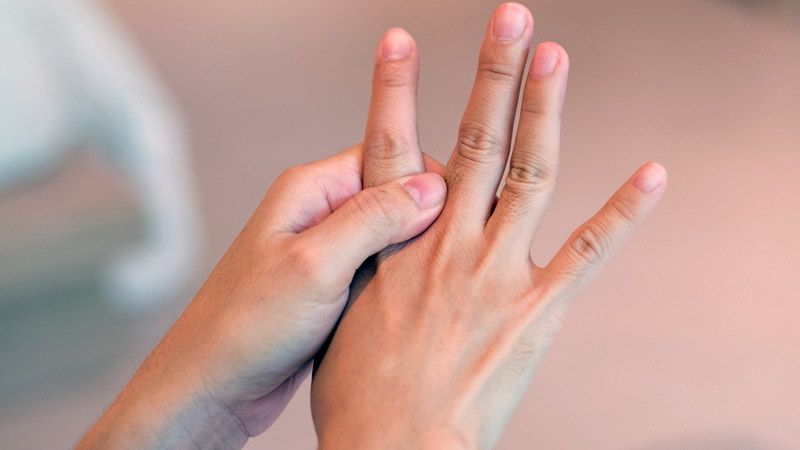Experiencing a tingling sensation in the fingers can be an annoying and often disruptive condition, affecting daily routines and even sleep patterns. This sensation, often described as “pins and needles,” can arise from various causes, ranging from temporary to more chronic neurological issues.
Kerry Levin, M.D., a distinguished neurologist and chair of the department at Cleveland Clinic, likens this sensation to the numbness felt when a limb is compressed for too long, such as when resting too heavily on an elbow. Delving into the root causes of this discomfort, Levin, who is also a respected fellow of the American Academy of Neurology, points out that occasional tingling can result from transient factors like anxiety or prolonged pressure on a limb.
These instances typically resolve on their own once the immediate cause is removed. However, when the tingling is persistent, it could indicate a more serious underlying neurological condition. Common culprits include carpal tunnel syndrome, ulnar nerve compression at the elbow, or a pinched nerve in the neck. These conditions interrupt the normal signal transmission along the nerves, leading to uncomfortable tingling sensations.
Jesus Lizarzaburu, M.D., a family physician, emphasizes that carpal tunnel syndrome is among the most prevalent causes of finger tingling. This condition is often a result of repetitive wrist and hand motions that lead to nerve inflammation within the carpal tunnel, a narrow passageway in the wrist. As the nerve swells, the pressure within this confined space increases, exacerbating the tingling sensation.
Moreover, medical conditions like unmanaged diabetes can precipitate this issue by damaging nerves over time, a process known as diabetic neuropathy. This typically affects the extremities, starting with the feet and eventually the hands. Nutritional deficiencies, particularly in vitamins B12, B6, or E, along with infections or inflammatory diseases such as Lyme disease or shingles, can also manifest as tingling in the fingers.
To mitigate these sensations, experts suggest several proactive measures. Being mindful of and avoiding activities that trigger the tingling is a primary step. Maintaining a healthy lifestyle, including regular physical activity and a balanced diet, alongside proper hydration, can be beneficial. Managing pre-existing health conditions like diabetes with appropriate diet and medication is crucial. For specific issues like carpal tunnel syndrome, non-invasive treatments such as stretching exercises, physical therapy, or wearing wrist splints at night can offer relief.
However, if tingling sensations persist or worsen, particularly if accompanied by symptoms like coughing, straining, or movements of the neck or arm, it could signal a more serious neurological issue requiring medical evaluation. Diagnostic tests, such as MRI imaging or electrical nerve testing, may be necessary to pinpoint the exact cause. Depending on the diagnosis, tailored treatments, ranging from simple exercises to surgical intervention, might be recommended to alleviate the discomfort and address the underlying condition effectively.



